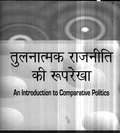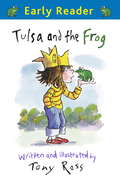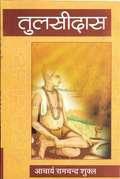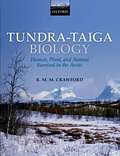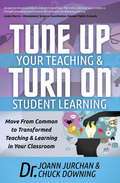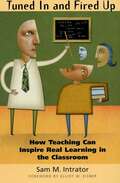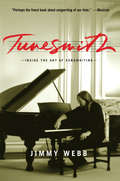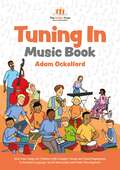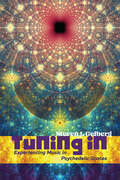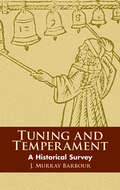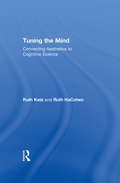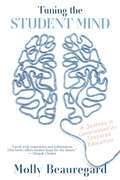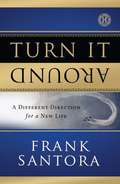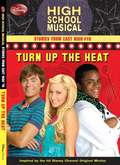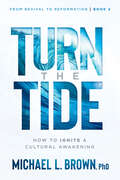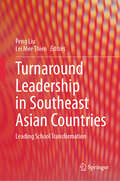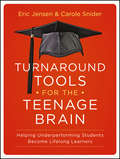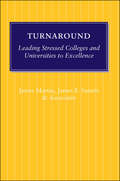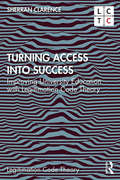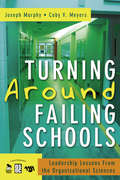- Table View
- List View
Tulnatmak Rajniti Ki Rooprekha
by O. P Guaba‘तुलनात्मक राजनीति की रूपरेखा’ का उद्देश्य विश्वविद्यालय स्तर के छात्र-छात्राओं को तुलनात्मक राजनीति-विश्लेषण की इन नवीनतम प्रवृत्तियों से परिचित कराना है। इसके अंतर्गत तुलनात्मक राजनीति-विश्लेषण के सैद्धांतिक ढांचे की व्याख्या करते हुए उदारवादी, समाजवादी और विकासशील देशों की राजनीतिक प्रणालियों का सामाजिक-आर्थिक विश्लेषण प्रस्तुत किया गया है। इसमें तुलनात्मक राजनीति-विश्लेषण के स्वरूप और विकास की चर्चा करते हुए संस्थात्मक उपागम और प्रणाली-विश्लेषण की व्याख्या की गई है। राजनीतिक अर्थ-व्यवस्था उपागम का वेिचन करते हुए उदारवादी और मार्क्सवादी दष्टिकोणों को स्पष्ट किया गया है। उदारवादी प्रणालियों में ब्रिटिश संसदीय प्रणाली और अमरीकी अध्यक्षीय प्रणाली के राजनीतिक ढांचों का विवरण देते हुए इनके सामाजिक-आर्थिक आधार की जांच की गई है। समाजवादी प्रणालियों में राजनीतिक प्रक्रिया के विशेष लक्षणों की पहचान करके सोवियत संघ के पतन के कारणों पर प्रकाश डाला गया है। सोवियत संघ और जनवादी चीन के विकास-मार्गों की विस्तृत समीक्षा की गई है। विकासशील देशों में राजनीतिक अस्थिरता के कारणों और परिणामों पर विचार किया गया है; एकदलीय प्रणाली के उदय और ह्रास की जांच की गई है; अल्पविकास की प्रकृति और कारणों के बारे में उदारवादी और मार्क्सवादी विश्लेषण का सारांश दिया गया है; नव-उपनिवेशवाद के समकालीन रूपों का सर्वेक्षण किया गया है; और संजातीय तनावों के विश्लेषण के लिए विकास दृष्टिकोण और पराश्रितता-दृष्टिकोण की मान्यताओं का विवेचन किया गया है। अंत में ‘पारिभाषिक शब्दावली’ के अंतर्गत महत्त्वपूर्ण पारिभाषिक शब्दों की व्याख्या की गई है। शासन-प्रणालियों के विवरण को यथासंभव संक्षेप में देकर यथार्थ राजनीति के सामाजिक-आर्थिक विश्लेषण पर विशेष ध्यान दिया गया है।
Tulsa and the Frog
by Tony RossEarly Readers are stepping stones from picture books to reading books. A blue Early Reader is perfect for sharing and reading together. A red Early Reader is the next step on your reading journey.Tulsa dreams of a life as exciting as the girls in her story books. First she tries pretending to be Snow White, Pippi Longstocking and Rapunzel. Then one day, in an enchanted forest behind her house, she discovers a talking frog...
Tulsa and the Frog (Early Reader)
by Tony RossEarly Readers are stepping stones from picture books to reading books. A blue Early Reader is perfect for sharing and reading together. A red Early Reader is the next step on your reading journey.Tulsa dreams of a life as exciting as the girls in her story books. First she tries pretending to be Snow White, Pippi Longstocking and Rapunzel. Then one day, in an enchanted forest behind her house, she discovers a talking frog...
Tulsidas: तुलसीदास
by Aacharya Shuklaतुलसीदास यह पुस्तक हिंदी भाषा में श्री प्रकाशन ने प्रकाशित किया गया है, इस पाठपुस्तक में गोस्वामीजी का जीवनचरित भी गौण रूप में सम्मिलित किया गया है। यह पुस्तक अपने विशुद्ध आलोचनात्मक रूप में पाठकों के सामने रखी जाती है। इस पुस्तक में गोस्वामीजी के महत्त्व के साक्षात्कार और उनकी विशेषताओं के प्रदर्शन का लघु प्रयत्न समझाया गया है। इस प्रयत्न में कहाँ तक सफलता हुई है, इसका निर्णय तो गोस्वामीजी की कृतियों से परिचित और प्रभावित सहृदय समाज ही कर सकता है। किताब में तुलसी की भक्तिपद्धति और काव्यपद्धति को समझाया है ।
Tundra-Taiga Biology
by R. M. M. CrawfordThe Arctic Tundra and adjacent Boreal Forest or Taiga support the most cold-adapted flora and fauna on Earth. The evolutionary capacity of both plants and animals to adapt to these thermally limiting conditions has always attracted biological investigation and is a central theme of this book. How the polar biota will adapt to a warmer world is creating significant and renewed interest in this habitat. The Arctic has always been subject to climatic fluctuation and the polar biota has successfully adapted to these changes throughout its evolutionary history. Whether or not climatic warming will allow the Boreal Forest to advance onto the treeless Tundra is one of the most tantalizing questions that can be asked today in relation to terrestrial polar biology. Tundra-Taiga Biology provides a circum-polar perspective of adaptation to low temperatures and short growing seasons, together with a history of climatic variation as it has affected the evolution of terrestrial life in the Tundra and the adjacent forested Taiga. It will appeal to researchers new to the field and to the many students, professional ecologists and conservation practitioners requiring a concise but authoritative overview of the biome. Its accessibility also makes it suitable for undergraduate and graduate students taking courses in tundra, taiga, and arctic ecology.
Tune Up Your Teaching & Turn On Student Learning: Move From Common to Transformed Teaching & Learning in Your Classroom
by Dr. Joann Jurchan Dr. Chuck DowningTwo teaching experts offer methods for maximizing student comprehension in all areas of education—with extensive research and practical examples. All teachers want their students to think, learn, and understand. In this helpful guide, veteran educators Dr. JoAnn Jurchan and Dr. Chuck Downing examine what successful teachers are doing—and not doing—to achieve those goals. Often without realizing it, many teachers provide students ways to complete their assignments with minimal effort or comprehension. The problem is how to avoid the &“TMI&” trap—because Too Much Information can stifle critical thinking. Tune Up Your Teaching provides clear and detailed methods teachers can use to raise the level of both thinking and learning in their classrooms. Written in a conversational style, Jurchan and Downing use concrete examples in all core areas of education. To clarify critical points, the authors include &“He Said She Said&” dialogues providing insight into their thought process. Neither a &“cookbook&” nor a &“one size fits all&” solution, Tune Up Your Teaching instead describes a research-based process that can be personally tailored by any teacher to her or his situation.
Tuned In and Fired Up: How Teaching Can Inspire Real Learning in the Classroom
by Elliot W. Eisner Sam M. IntratorEvery teacher has powerful memories of becoming swept up in an electric moment when the classroom hums with energy and students are wholly engaged in learning. During such moments of real learning, teenagers find genuine meaning, worth, and value in their academic experiences. And their teachers find in these heightened and exuberant moments the embodiment of their best hopes and ideals as educators. How can such “teachable moments” be encouraged? What can teachers do to inspire more of these educationally vital episodes? In this compelling book, Sam M. Intrator scrutinizes powerful learning moments in a high school classroom. He offers five detailed portraits of these experiences, describing in each case how the teacher shaped the culture of the class, made critical pedagogical decisions, and connected students to the subject matter. Intrator confirms that seemingly magical learning moments can be cultivated, and he suggests numerous practical ideas to help teachers do so.
Tunesmith: Inside the Art of Songwriting
by Jimmy WebbWebb brings his insider's knowledge, experience, and star power to the ultimate guide for aspiring songwriters. With a combination of anecdotes, meditation, and advice, he breaks down the creative process from beginning to end--from coping with writer's block, to song construction, chords, and even self-promotion. Webb also gives readers a glimpse into the professional music world.
Tuning In Music Book: Sixty-Four Songs for Children with Complex Needs and Visual Impairment to Promote Language, Social Interaction and Wider Development
by Adam OckelfordContaining 64 songs designed to promote language, social and musical development, this book accompanies the Tuning In Cards so you can perform the songs and integrate the activities into your own practice. When paired with the Tuning In Cards, it will offer an innovative way of developing communication in children with profound disabilities, visual impairment, and autism.These songs have been developed in line with the Sounds of Intent framework, and a helpful introduction by the composer describes how to adapt the songs and activities to the appropriate developmental level.
Tuning In: Experiencing Music in Psychedelic States
by Steven J. GelbergThe first authoritative study of the important role of music in psychedelic use and the ways in which psychedelics provide unprecedented access to the deeper mysteries of music.Tuning In is the first authoritative study of a subject that is of wide and growing importance within the current psychedelic renaissance: the role and experience of music in personal growth and healing via psychedelics. The book brings together the best insights and creative musings on the subject from respected figures within the psychedelic community. Going back several decades (and beyond), this book includes first-hand testimony from numerous "trip reports," along with relevant insights from psychologists, scientists, philosophers, scholars of religion, musicologists, musicians, and mystics. Tuning In takes an experiential approach to understanding the unique synergy between psychedelic states and music: how music profoundly supports and enhances psychedelic sessions while psychedelic states provide a unique doorway into the inner mysteries of music. Author Steven J. Gelberg includes helpful guidance in assessing and choosing music appropriate for psychedelic sessions, along with links to curated music playlists.
Tuning and Temperament: A Historical Survey
by J. Murray BarbourThe demands of tuning (attaining the perfect scale) and temperament (the compromises necessary for composing in every key) have challenged musicians from the earliest civilizations onward. This guide surveys these longstanding problems, devoting a chapter to each principal theory and offering a running account of the complete history of tuning and temperament. Organized chronologically, the book features a helpful glossary and numerous illustrative tables, and it requires minimal background in music theory. This new reissue is currently the only edition in print of a much-quoted classic. 9 figures. 180 tables.
Tuning the Mind: Connecting Aesthetics to Cognitive Science
by Ruth HaCohenStarting from the late Renaissance, efforts to make vocal music more expressive heightened the power of words, which, in turn, gave birth to the modern semantics of musical expression. As the skepticism of seventeenth-century science divorced the acoustic properties from the metaphysical qualities of music, the door was opened to dicern the rich links between musical perception and varied mental faculties. In Tuning the Mind, Ruth Katz and Ruth HaCohen trace how eighteenth century theoreticians of music examined anew the role of the arts within a general theory of knowledge.As the authors note, the differences between the physical and emotional dimensions of music stimulated novel conceptions and empirical inquiries into the old aesthetic queries. Tracing this development, their opening chapter deals with seventeenth-century epistemological issues concerning the artistic qualities of music. Katz and HaCohen show that painting and literature displayed a comparable tendency toward "musicalization," whereby the dynamic of forms-the modalities specific to each artistic medium-rather than subject matter was believed to determine expression. Katz and HaCohen explore the ambiguities inherent in idealization of an art form whose mimetic function has always been problematic. They discuss the major outlines of this development, from Descartes to Vico through Condillac. Particular emphasis is placed on eighteenth-century British thinkers, from Shaftesbury to Adam Smith, who perceived these problems in their full complexity. They also explore how the French and the Germans dealt differently with questions that preoccupied the British, each nation in accordance with their own past tradition and tendencies. The concluding chapter summarizes the parallel development of abstract art and basic hypotheses concerning the mind and explores basic theoretical questions pertaining to the relationship between perception and cognition.In addressing some of the most complex problems in musical aesthetics, Katz and HaCohen provide a unique historical perspective on the ways their art creates and develops coherent worlds, and, in so doing, contribute to our understanding of the workings of the mind.
Tuning the Student Mind: A Journey in Consciousness-Centered Education
by Molly BeauregardHow can we rethink teaching practices to include and engage the whole student? What would student experience look like if we integrated silence and feeling with empirical analysis? Tuning the Student Mind is the story of one teacher's attempt to answer these questions by creating an innovative college course that marries the spiritual and the theoretical, integrating meditation and self-reflection with more conventional academic curriculum. The book follows Molly Beauregard and her students on their intellectual and spiritual journey over the course of a semester in her class, "Consciousness, Creativity, and Identity." Interweaving personal stories, student writing, and Beauregard's responses, along with recommendations for further reading and a research appendix, it makes the case for the transformative power of consciousness-centered education. Written in a warm, engaging voice that reflects Beauregard's teaching style, Tuning the Student Mind provides an accessible, step-by-step template for other educators, while inviting readers more broadly to reconnect with the joy of learning in and beyond the classroom.
Turkey Trouble
by Patricia HermesEveryone wanted to be Pocahontas. Mrs. Henry said everyone had to be on their best behavior for the program. Best behavior was grown-up talk for raising your hand instead of calling out in class, being on time for school, sitting up straight and tall, and not talking in line. Katie had been on her best behavior ever. Besides, she had an even better chance because she'd found her favorite lucky koala bear.
Turn It Around
by Frank SantoraSantora explains how God can bring purpose out of your life, even when difficult situations seem to make your life spiral out of control.
Turn It Around: A Different Direction for Your Life
by Frank SantoraPastor and motivational speaker Frank Santora shares seven powerful solutions that promise to transform what appear to be life's road blocks into victories that will turn your life around.With clarity and vision, Frank Santora presents the message that God can still bring meaning and purpose out of your life, even when insurmountable circumstances and difficult situations seem to be making your life spiral out of control. Santora reveals seven pathways for turning your life around with chapters such as, "Changing Direction When You're Headed Down the Wrong Road, " "Making Things Right When You've Totally Blown it," "Regaining Confidence When No One Believes in You," Finding Your Way Back When You've Walked Away From God," "Regaining Life's Composure When Things are Out of Your Control," and "Finding a Way Out When You Feel Trapped." Affirming the importance and worth of each reader, Santora shows readers how to turn around even the must difficult life situations.
Turn Up the Heat (High School Musical Stories from East High #10)
by Helen PerelmanEast High is bubbling with excitement. The Baking Channel is holding a national cake-making challenge, and Zeke has been picked to compete! To help ease the pressure, Zeke chooses Troy, Sharpay, Gabriella, and the rest of his friends as his team. But are there too many cooks in the kitchen?
Turn Up the Heat (High School Musical: Stories From East High #10 )
by Helen PerelmanEast High is bubbling with excitement. The Baking Channel is holding a national cake-making challenge, and Zeke has been picked to compete! To help ease the pressure, Zeke chooses Troy, Sharpay, Gabriella, and the rest of his friends as his team. But are there too many cooks in the kitchen? As the drama heats up, the head chef is about to lose control. Can the Wildcats pull together to bake a masterpiece? Or will East High's hopes crumble into a culinary catastrophe? Bookshare has the other books in this series. Look for: #1 BATTLE OF THE BANDS, #2 WILDCAT SPIRIT, #3 POETRY IN MOTION, #4 CRUNCH TIME, #5 BROADWAY DREAMS, #6 Heart to Heart, #7 Friends 4Ever, #8 GET YOUR VOTE ON, #9 Ringin' It In and #11 In The Spotlight.
Turn the Tide: How to Ignite a Cultural Awakening (From Revival to Reformation #2)
by Michael L. BrownWith the power of the Holy Spirit, we can change the world instead of the world changing us. This book will provide the information you need so you can be effectively used by the Holy Spirit to bring reformation to our society in the wake of spiritual revival. You will see how God can use you in both big and small ways to fulfill His great commission. How can a spiritual outpouring in the church become a cultural awakening in the society? How can we move from revival to reformation? In Turn the Tide, Michael L. Brown, PhD, lays out the key steps believers must take in this new season of revival—from the prayer room to the home, from the schools and universities to the worlds of finance and politics—to see lasting cultural change. Drawing from historical revivals and scriptural insights, Brown challenges readers to move beyond the boundaries of the church walls and engage in a transformative journey that permeates every aspect of society. He addresses topics such as how to: deepen our prayer base infiltrate the educational system be grounded in apologetics raise up godly leaders in politics engage the culture wars in the power of the Spirit walk in God&’s love and truth without becoming the morality police Turn the Tide is an urgent call to believers to rise above complacency and embrace their role as catalysts for societal transformation. It is an essential guidebook for those who long to see their homes, cities, and nations transformed by the power of God.
Turnaround Leadership in Southeast Asian Countries: Leading School Transformation
by Peng Liu Lei Mee ThienThis book explores turnaround leadership in Southeast Asian countries across four themes: principal competencies and leadership frameworks, country-specific practices, teacher leadership and empowerment, and system leadership for school transformation. The chapters collectively contribute to a unified understanding of how theoretical models intersect with real-world challenges and strategies to improve low-performing schools. Emphasising a flexible, context-driven approach over a one-size-fits-all model, the book underscores the importance of adapting leadership strategies to diverse educational environments. While rooted in Southeast Asia, its insights are globally relevant, offering guidance for scholars, policymakers, and practitioners aiming to advance educational equity and sustainable school improvement through contextually grounded leadership practices. This book also encourages meaningful cross-country learning and policy development. Professor Kenneth Leithwood, University of Toronto, Canada Featuring qualitative evidence from schools in 11 Southeast Asian countries, this book provides a carefully grounded and much needed non-western perspective on the meaning of successful school leadersh
Turnaround Tools for the Teenage Brain
by Eric Jensen Carole SniderPowerful research-based strategies to turn around struggling adolescent students The achievement gap is widening and more teens than ever are struggling in school. The latest research shows not only that brains can change, but that teachers and other providers have the power to boost students' effort, focus, attitude, and even IQs. In this book bestselling author Eric Jensen and co-author Carole Snider offer teacher-friendly strategies to ensure that all students graduate, become lifelong learners, and ultimately be successful in school and life. Drawing on cutting-edge science, this breakthrough book reveals core tools to increase student effort, build attitudes, and improve behaviors.Practical, teacher-tested, and research-supported strategies that will empower educators to make lasting and rapid changesPowerful academic evidence showing that every teacher can make a significant--and lasting--difference in student effort, behavior, attitude, and achievementSpecific tools for making and managing the student's goal-seeking process and helping to develop a winner's mindsetFrom the very first chapter, educators will learn how to help their struggling students become excited, lifelong learners. Eric Jensen is a noted authority on brain-based learning and student engagement. Carole Snider is an expert in both adolescent success and adult learning.
Turnaround: Leading Stressed Colleges and Universities to Excellence
by James Martin James E. SamelsNearly one thousand colleges and universities in the United States face major challenges—from catastrophic hurricanes to loss of accreditation to sagging enrollment. What can leaders of such at-risk institutions do to improve their situation? Turnaround gives college and university leaders the tools they need to put their fragile institutions back on a path to success.This comprehensive handbook outlines how board members, presidents, and administrators can identify their institutions' weaknesses, implement plans for improvement, and mitigate existing damage. Turnaround also identifies the legal pitfalls that often accompany institutional change, offering solutions for how to overcome such obstacles or avoid them altogether. Evaluating the experiences of two hundred college leaders, the contributors share such critical information as:• 20 indicators of institutional vulnerability• 10 necessary skills for presidents directing a turnaround• 5 characteristics of institutions that have completed successful turnarounds• 10 lessons of successful turnaroundsFeaturing candid advice from decision makers who have faced severe challenges, Turnaround is a valuable resource for college and university leaders facing tough times.
Turning Access into Success: Improving University Education with Legitimation Code Theory (Legitimation Code Theory)
by Sherran ClarenceTeaching is crucial for supporting students’ chances of success in higher education, yet often makes limited use of theory to foster contextualized, systemic understandings of access and success. Theorized yet practical ways of empowering university educators are needed to develop their practices and turn access into success for their students. This book harnesses Legitimation Code Theory ‘LCT’ to inspire university educators to understand, reimagine and create socially just teaching and learning practices. Chapters bring this powerful theory to bear on real-world examples of curriculum design, inclusive practices, cumulative learning, assessment practices, and reflection. Each chapter guides the reader through these cutting-edge ideas, illustrates how they can make real differences in practice, and sets out ways of thinking that educators integrate those ideas into practice. The outcomes will help students access the powerful knowledge and ways of knowing they need for success in higher education.
Turning Around Failing Schools: Leadership Lessons From the Organizational Sciences
by Joseph F. Murphy Coby V. MeyersProvides an in-depth examination of the causes and symptoms of degeneration and a two-part model for preventing educational collapse and crafting an effective turnaround.
Turning Center Programming, Setup, and Operation Textbook: A Guide To Mastering The Use Of CNC Turning Centers
by Mike LynchIt is the intention of this text to introduce beginners and experienced CNC people alike to programming, setup, and operation techniques used to utilize CNC turning centers. We will begin in a basic manner, ensuring that even newcomers to CNC will be able to follow the presentations. And we use a building blocks approach -- so as you get deeper into the material -- we'll be adding to what you already know. When you're finished, you will have a thorough understanding of what it takes to program, setup, and run a CNC turning center. We use a Key Concepts approach to presenting CNC. The Key Concepts allow us to minimize the number of major topics you must master in order to become proficient with CNC turning center usage.
